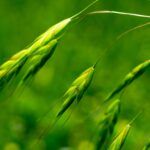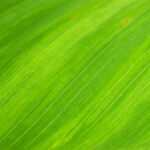Basic Adjectives and Opposites
If you’re just getting started with Finnish, these basic adjectives and opposites are a fun way to start. When learning them as pairs, you can learn two with half the effort. Knowing the one will remind you of the other.
Adjectives are the answer to the question “millainen?”. You can learn more about interrogatives (aka question words) on my website as well!
| Finnish | English | Finnish | English |
|---|---|---|---|
| uusi | new | vanha | old |
| iloinen | happy | surullinen | sad |
| kaunis | beautiful | ruma | ugly |
| pitkä | long, tall | lyhyt | short |
| terve | healthy | sairas | sick |
| lihava | fat | laiha | skinny |
| paksu | thick | ohut | thin |
| nuori | young | vanha | old |
| auki | open | kiinni | closed |
| täysi | full | tyhjä (pic) | empty |
| kallis | expensive | halpa | cheap |
| vaikea | difficult | helppo | easy |
| rikas | rich | köyhä | poor |
| kuuma | hot | kylmä | cold |
| kuiva | dry | märkä (pic) | wet |
| valoisa | bright | pimeä | dark |
| vihainen | angry | rauhallinen | calm |
| sotkuinen | messy | siisti (pic) | tidy |
| leveä | wide | kapea | narrow |
| pehmeä | soft | kova | hard |
| painava | heavy | kevyt | light |
| terävä | sharp | tylsä | blunt |
| hauska | funny | tylsä | boring |
| hidas | slow | nopea | fast |
| korkea | high | matala | low |
| hapan | sour | makea | sweet |
| fiksu | smart | tyhmä | stupid |
| kiltti | good | tuhma | naughty |
| ahkera | hard-working | laiska | lazy |
| likainen | dirty | puhdas | clean |
| vahva | strong | heikko | weak |
| ilmainen (pic) | free of charge | maksullinen | costs |
If you are interested in sayings, you can learn some sayings with basic adjectives! You can also learn the names of the colors in Finnish!
If you’ve been wondering when to use vaikea and when kova, you can find out in this article on how to say “hard” in Finnish.
Important! Note that the adjectives will inflect in the same cases as the word they’re connected to. This means that if the noun has -ssa at the end of it, the adjective also should have the -ssa ending. This is true for all the cases. For example, we’ll say pitkä sohva (long couch), but pitkällä sohvalla; (on the long couch); likewise vahva juoma (the strong drink) becomes vahvat juomat (the strong drinks).





A great advise for learning in pair and totally usual reminder that both nouns and adjectives get case-endings. The only “but” I can see is that “auki” and “kiinni” behave like an adverb. I can think of “avoin” and “suljettu” when we need to inflect them as adjectives.
Or maybe I’m missing some details?
Naah, you’re right 🙂 Auki and kiinni are adverbs, but they are usually added to lists like this because they’re very useful opposites for beginning learners.
In English, “open” and “closed” are adjectives, so having these concepts included is good. Tricky is what terms to use for Finnish. Auki and kiinni are used more often than avoin and suljettu, so they make more sense to learn from the absolute-beginner standpoint. Kauppa on auki. Ovi on kiinni.
This is one of those odd situations where I’d rather be wrong than right 🙂